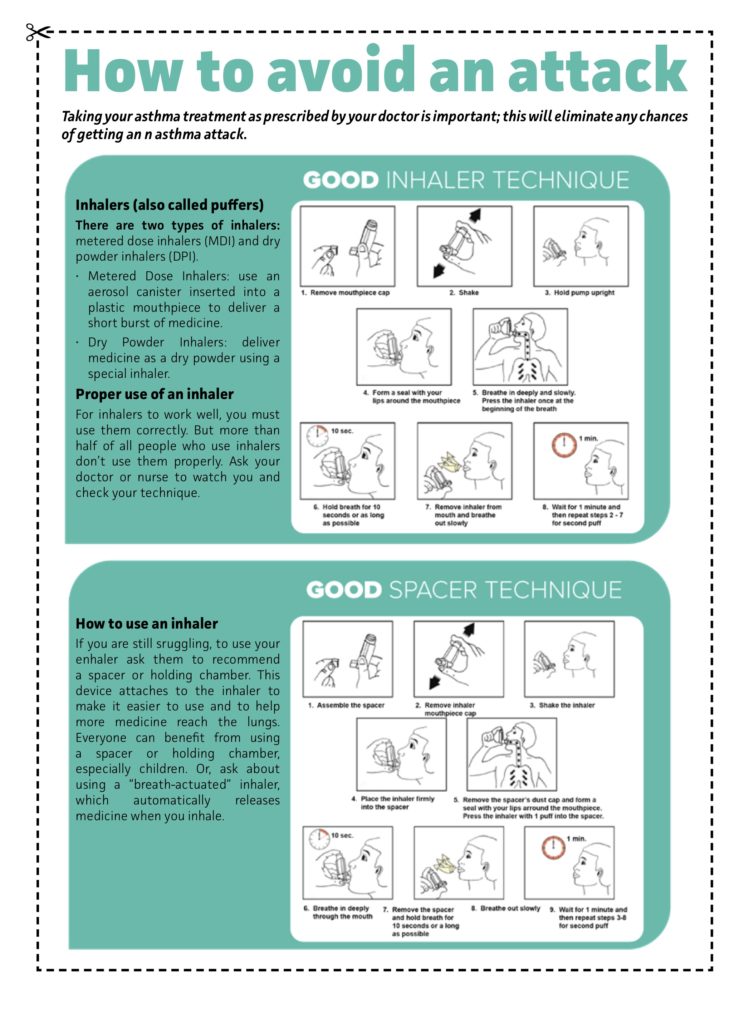Asthma is one of the most common chronic illnesses, affecting over 339 million people worldwide. According to the World Health Organisation (WHO), asthma kills around 1 000 people every day and the prevalence is rising.
South Africa is ranked 25th worldwide for asthma prevalence and is ranked fifth for asthma mortality. The lack of appropriate diagnosis, treatment or access to care may be important considerations in tackling asthma morbidity and mortality in South Africa.
What is asthma?
Asthma is one of the most common respiratory complaints in the world where your airways – known as bronchial rubes – become inflamed. This swelling or inflammation makes the airways extremely sensitive to irritations and increases their susceptibility to an allergic reaction. In an allergic reaction, the airways swell and the muscles around the airway tighten, making it difficult for air to move in and out of the lungs.
It affects approximately one in 10 children (10%) and one in 20 adults (5%) and can occur for the first time at any age, even in adulthood. Although asthma usually begins before the age of five, a few children affected will ‘outgrow’ it during their teenage years but it usually persists if contracted in adulthood. Asthma tends to run in families, as do related allergic conditions like hay fever and eczema
Signs and symptoms
Asthma is often under-diagnosed and under-treated. If you fail to recognise and avoid triggers that lead to your tightened airways, you may have an asthma attack, feel respiratory distress or experience a life-threatening situation. So, it’s important that you know how to avoid the triggers and recognise the signs of this condition to enjoy a better quality of life.
Symptoms can range from mild to more serious depending on the severity of the illness but include:
- Coughing that does not subside and gets worse at night
- Wheezing
- Shortness of breath
- Tightness or pain in the chest
What causes asthma?
The exact cause of the asthmatic process is not well understood but it is thought to be triggered off by an allergy or when the lungs are irritated by something in the air. Research shows that the risk facts are a combination of genetic predisposition and environmental exposure to inhaled substances and particles that may cause allergic reactions or irritate the airways. These include indoor allergens – such as dust mites and pet dander in the home, outdoor allergens – such as pollen and mould as well as tobacco smoke and air pollution.
Other triggers can include cold air, stress or physical exercise. Certain medications, such as aspirin and other non-steroid anti-inflammatory drugs and beta-blockers (which are used to treat high blood pressure, heart conditions and migraine) can also set off an asthma attack.
Factors associated with asthma prevalence or disease severity in South African children include the adoption of an urban lifestyle, atopy (a genetic predisposition),obesity, respiratory infection, or exposure to industrial pollution or tobacco smoke.
Treating asthma
Asthma can be life threatening when left untreated and cannot be cured but, with the right treatment most asthmatics will lead completely normal lives. The aim of treatment should be to make the lungs and breathing tubes as normal as possible so that there are minimal symptoms and as little disruption to ordinary life as possible.

Get help
Bonitas Medical Fund says, ‘If you are experiencing asthma symptoms or think you might have asthma, it is important for you to talk to your GP. This will help you establish if your symptoms are linked to asthma or whether something else is causing them.’
For 2025 we have a renewed Female Health Programme:In collaboration with CareWorks, it’s accessible to all female members aged 18 and above, with an emphasis on preventative care and early detection of female-specific health issues. In addition, we have an enhanced Maternity Programme to support expecting mothers. This includes early identification of and weekly engagement for high-risk pregnancies, post-childbirth care and associated mental health follow-up calls for new mums, given the prevalence of pre and postnatal depression. Also, milestone reminders for children under 3 and cover for antenatal vitamins through savings, day-to-day benefits or the Benefit Booster
Bonitas Medical Fund
0860 002 108
View Website: www.bonitas.co.za
- Putting together your birth plan - December 23, 2025
- Breastfeeding tips - December 15, 2025
- Mental health matters during the festive season: Let’s normalise getting help - December 11, 2025





